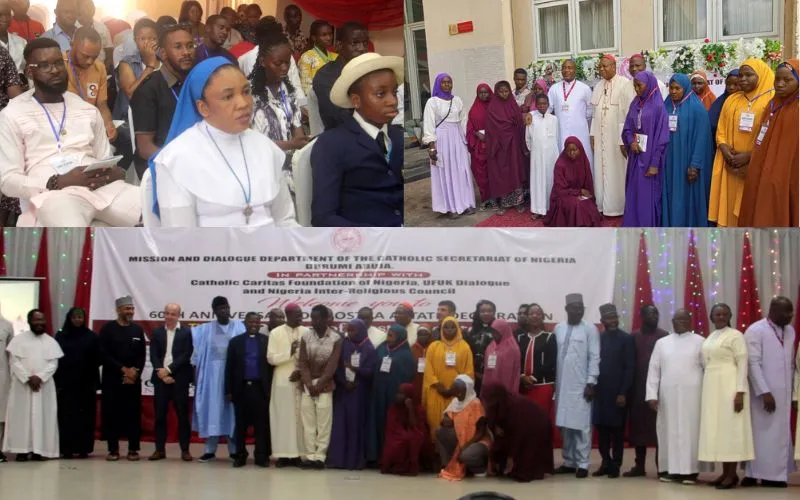Despite the slow pace of transformation, Fr. Emehel acknowledged, he insisted that dialogue is non-negotiable.
“Even after war, you return to the table to talk. So why not talk now and prevent the war in the first place? Dialogue is not a magic wand, but it helps us manage tensions and move towards peaceful coexistence,” he said.
In another interview with ACI Africa during the June 5 event, the Director of Research and Training at the Da’wah Institute of Nigeria, Sheikh Nurudeen Lemu, lauded Nostra Aetate for the declaration’s respectful portrayal of Islam.
“It is one of the few documents from a major religious body that Muslims read and say, ‘We agree with this. The Catholic Church took a bold step in recognizing that God acknowledges good people even outside the Church. That was a breath of fresh air,” Sheikh Lemu said.
The Assistant General Secretary of Islamic Education Trust pointed out that all religious traditions have individuals who adopt exclusivist positions.
(Story continues below)
“Some people believe that God is theirs alone, that paradise is reserved for them, and others are doomed. But that is a limited view of an infinite God. We often bring God down to our own biases, forgetting that God’s mercy goes far beyond our comprehension,” he said.
Sheikh Lemu called for a Nigerian version of Nostra Aetate, a public declaration of shared values among religious groups in the West African nation that is Africa’s most populous nation.
“Nigeria is the most religiously diverse nation in Africa. We need a document that affirms our shared humanity and rejects the narrative that only one group holds the truth,” he said.
Reflecting on “irrational fear” that often characterizes interfaith relations in Nigeria, Sheikh Lemu cautioned against misdiagnosing social problems as religious conflicts.
“We have Islamophobia and Christianophobia. Many conflicts are not about religion at all, but by labelling them as such, we apply the wrong solutions. The result is continued suffering,” he said.
On his part, the Executive Secretary of NIREC, Fr. Cornelius Afebu Omonokhua, acknowledged the cooperation between Christians and Muslims in dialogue efforts but warned that political actors often undermine these gains.
“Our leaders have weaponized religion and ethnicity. This has fuelled insecurity. Unfortunately, those who should be the solution—the security agencies—are sometimes part of the problem,” Fr. Omonokhua told ACI Africa on the sidelines of the June 5 event.
He described how criminal elements have infiltrated the armed forces, making it difficult for genuine dialogue to reach the roots of violence.
“How can you engage bandits in dialogue when the people supposed to combat them are working with them? The recruitment of so-called repentant insurgents into the military has only deepened the sabotage,” he said.
He commended NIREC’s work since its establishment in 1999, saying, “We have resolved many issues through dialogue. But we cannot go into the forest to fight Boko Haram.”
“What we can do is promote intra-religious and interreligious dialogue. Let every faith community take responsibility to correct those who misuse religion,” Fr. Omonokhua said.
He added, “Peace is possible, but it requires both political will and religious commitment.”
Abah Anthony John is a Nigerian Catholic journalist with passion for Church communication and media apostolate. He holds a bachelor’s degree in mass communication from Benue State University, Makurdi in Benue State Nigeria. He has a background in print, electronic and multi-media production.




